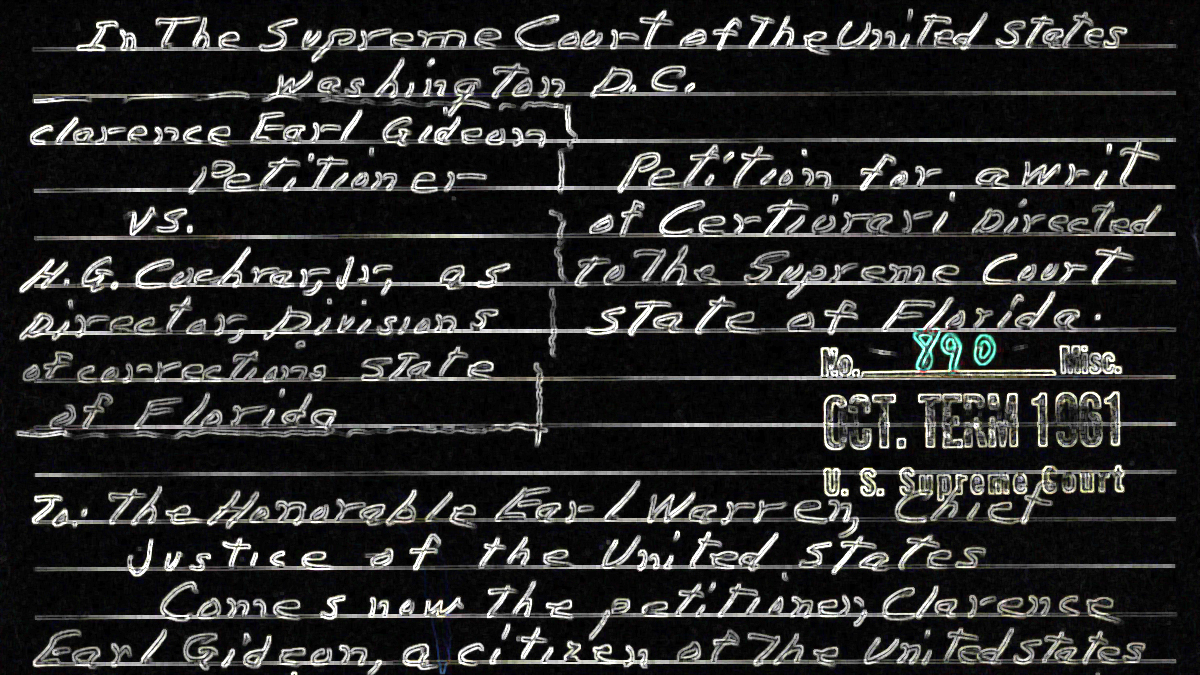Gideon Turns Sixty
The Court’s decision must not preempt questions about the role public defenders can play in ending mass incarceration.

In Gideon v. Wainwright—the landmark 1963 ruling that led to the creation of the public defense system—the Supreme Court declared that “lawyers in criminal courts are necessities, not luxuries.” Yet sixty years later, indigent defense in the United States remains precarious at best. Some would go so far as to say that Gideon helped to legitimize our brutal system of pleas and punishment—by ensuring that there’s a cadre of public defenders to process the millions who cycle through our nation’s jails and prisons every year.
In the struggle against the harms of the carceral state, Inquest recognizes the limits of the public defense system—and of other actors in the criminal legal system. Yet we also recognize that public defenders, by being among the closest to the people and communities harmed by mass incarceration, have a valuable role in working toward a world without it. By running for office, advocating for decarceral legislation, and getting the attention of the Supreme Court, public defenders can—and do—fight for change.
Beyond Gideon is our attempt to broaden this lens. In this series, we address questions about the role of public defense in challenging mass incarceration, and the conversations required to move that work forward.
We open with a reading list of archival essays examining how public defenders fit in the current system. Over the next two weeks, in recognition of the sixtieth anniversary of the Gideon ruling, we will add a five-part series of new essays from people invested in thinking through the role of public defenders in bringing about a decarceral future.
—March 2023
The Court’s decision must not preempt questions about the role public defenders can play in ending mass incarceration.
People assigned a public defender are the only ones deprived of the right to choose their lawyer. This often intersects disastrously with racial bias.
When the state of Virginia starved them, the author and his incarcerated comrades banded together to gain recognition of their right as citizens to access the courts.
As public defenders, we are not “fighting the system”—we are the system. Because of this, we have power, and the numbers, to change it.
Gideon v. Wainwright is the wrong cure for the reality that the carceral system is designed to target poor people.
From our archives
A reading list of past Inquest essays that examine the role of public defense in the machinery of mass incarceration.
One path to ending mass incarceration is ending our modern conception of public defense. And being transparent about our work is one way to start.
Decarceral Interventions
How public defenders today are addressing mass incarceration in their communities and beyond.
For public defenders in New York, representing clients unjustly criminalized for gun possession is a matter of principle. Now, they have the Supreme Court’s attention.
Congress’ rush to respond to recent mass shootings will criminalize Black and Brown communities the hardest, repeating historic mistakes that contributed to mass incarceration.
After a clean sweep in November, Republicans are now running Virginia. But the prospect of more progress, and justice, remains within reach for all Virginians.
As a lifelong public defender, I ran to become Santa Clara County’s next district attorney. I didn’t win, but our movement did.
Here’s how a former public defender elected to judicial office in New Orleans works to chip away at mass incarceration.